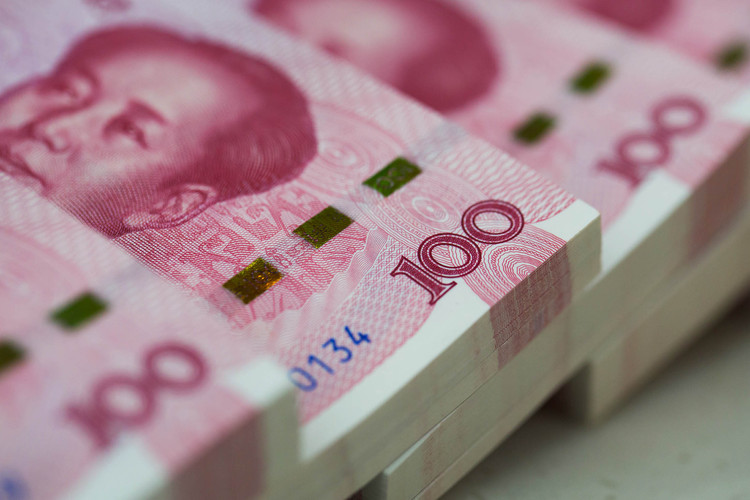- The Current Position of the Yuan
Investors across the globe have been keeping an eye on the Yuan owing to the tumultuous performance it has had in the past few years.
The Chinese currency has been on a downward trend, which has affected forex trading on various fronts. Being a big player in the global forex market, traders must gain a better understanding of the state of the Yuan and its outlook before trading on an online platform like CMC Markets. The latest news on the Asian currency is that the government may seek a new approach to maintain the stability of the currency.
A Different Stance
Speaking on Sunday, 5th March 2017 at the National People’s Congress, China’s Premier Li Keqiang said that the plan was to liberalise the renminbi exchange rate further. Keqiang was presenting the government work report, which included ‘maintaining the Yuan’s stable position in the world’s monetary system’ as one of its tasks. It is the first time a government report has contained this statement, which is different from the traditional ‘keeping the Yuan’s level reasonable and balanced’. Analysts speculate that this new wording in the report indicates that the Chinese government will be more open-minded about the Yuan’s move against the U.S dollar, not to mention a decrease in its involvement in the forex exchange market.
Causes for Concern
There have been indications that Beijing may take a different approach to its exchange rate policies in light of the rapid rate rise from the U.S. Fed Reserve. Any aggressive action from the Federal Reserve is expected to impact global currencies negatively, and the Yuan is in no position to deal with uncertainties at the moment. A second rate hike may not be too far away, following a statement by Fed Chair, Janet Yellen in mid-February that an interest hike should not take too long. She hinted that a rate increase might be appropriate when the Fed has its next meeting on March 14-15.
An increase U.S dollar value will put the renminbi under tremendous pressure. Compared to a few years ago, the Yuan is more dependent on the performance of the dollar; hence, the concern. U.S. and China interest differentials can cause capital flights, which is why the Chinese central bank has to act decisively. So far, the PBOC has not altered the benchmark interest rates or deposit reserve ratios for Chinese banks as it aims to keep monetary policy even- not too loose and not too tight.
Beijing is also worried about threats from President Trump to institute more protectionist measures, which are bound to result in trade wars between the two global market leaders. Political uncertainties in Europe as France, Germany and Holland head to elections are also huge concerns for Beijing. The possibility of ‘Black Swan’ results can have unfavourable consequences for China and other Asian markets. Not to forget the exit of Britain from the EU, which may not be smooth sailing.
The Future
There have been accusations from the U.S president that Beijing has been manipulating the Yuan. He claimed that the manipulation was aimed at increasing the competitiveness of Chinese exports. China has been trying to prop up the renminbi, which has not been easy. In 2 ½ years, the government dipped into its foreign exchange reserves to a tune of $1 trillion in an effort to strengthen the Yuan.
Financial experts such as Yu Yongding, a former adviser to the central bank, have been urging the government to let the currency devalue if the market wants it to. Vice-governor of the Chinese central bank, however, said that the government would never devalue the Yuan to promote exports. He added that China is responsible and will never stage a currency war.
 During Sunday’s National People Congress, Keqiang stated that the government was aiming at a 6.5% economic growth for the year. In 2016, the rate of increase was 6.7%, higher than the targeted 6.5-7%. An improvement in China’s economic growth means good news for the Yuan; and consequently, for investors. Investors have come to view the Chinese currency as less appealing as its international status keeps falling.
During Sunday’s National People Congress, Keqiang stated that the government was aiming at a 6.5% economic growth for the year. In 2016, the rate of increase was 6.7%, higher than the targeted 6.5-7%. An improvement in China’s economic growth means good news for the Yuan; and consequently, for investors. Investors have come to view the Chinese currency as less appealing as its international status keeps falling.
The Chinese government is also focusing on keeping the Yuan stable as the country goes through a leadership transition later in the year. The latest government report also insisted that monetary policy will remain ‘neutral and prudent’. Investors only have to wait and see how the new approach to the stabilisation of the Yuan works out.


 Forex1 week ago
Forex1 week ago
 Naira4 weeks ago
Naira4 weeks ago


 Naira7 days ago
Naira7 days ago
 Company News4 weeks ago
Company News4 weeks ago




 Naira3 weeks ago
Naira3 weeks ago


 Naira1 week ago
Naira1 week ago
 Billionaire Watch6 days ago
Billionaire Watch6 days ago
 Banking Sector3 weeks ago
Banking Sector3 weeks ago






















